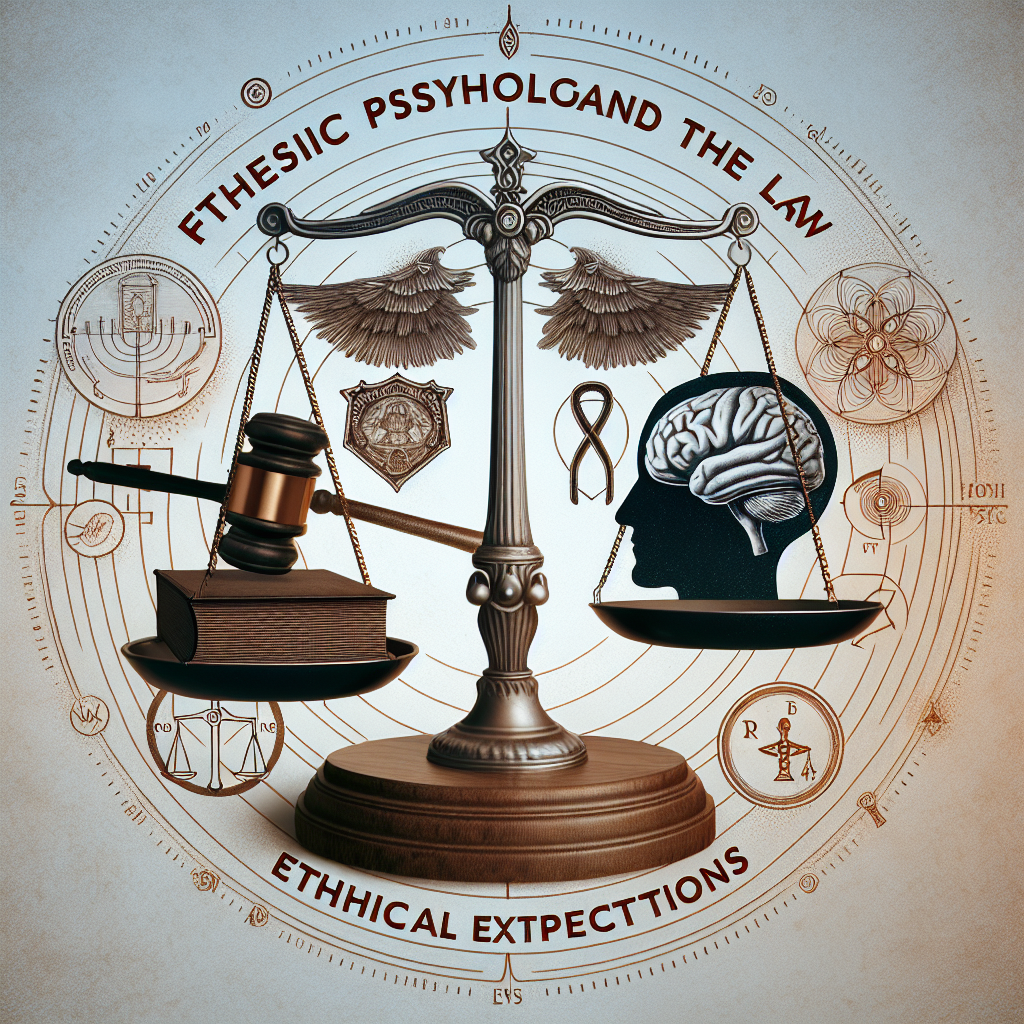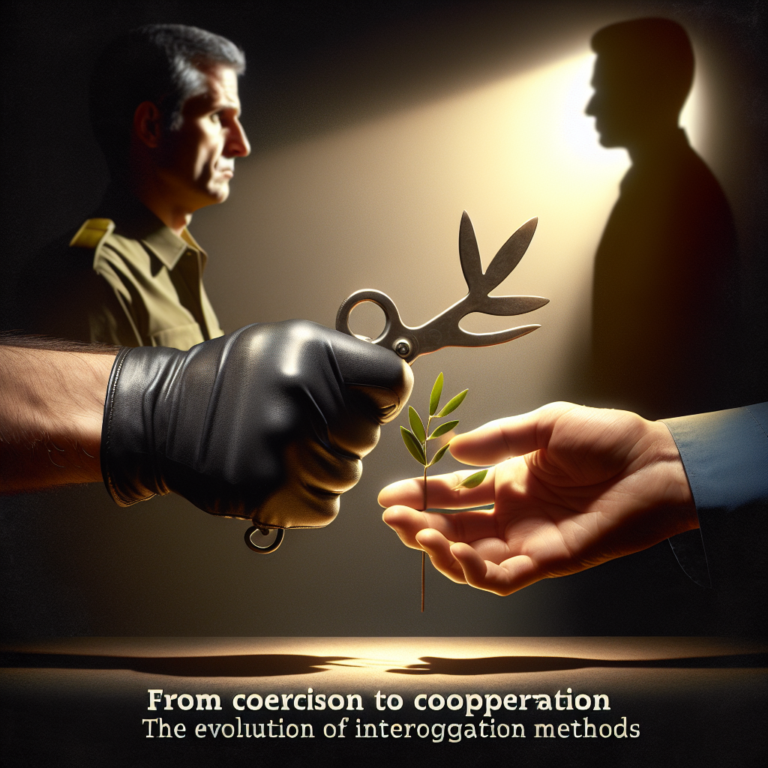
Introduction
Forensic psychology stands at the intersection of two worlds: the intricate realm of criminal justice and the nuanced field of psychology. As both a science and an art, it seeks to understand the mind of individuals involved in criminal behavior, making it an invaluable asset in legal proceedings. However, where the rigid structures of law meet the fluid, sometimes ambiguous standards of ethics, conflicts can arise. This article explores Forensic Psychology and the Law: Ethical Standards vs. Legal Expectations, focusing on the ethical dilemmas practitioners face and how they navigate the legal landscape.
Understanding Forensic Psychology
Defining Forensic Psychology
Forensic psychology involves applying psychological principles in the legal context, encompassing assessments, evaluations, and testimonies in court. Unlike clinical psychology, which focuses on mental health, forensic psychology often deals with issues like competency to stand trial, risk assessments, and criminal profiling. Professionals in this field must remain objective and unbiased, ensuring that their evaluations align with both ethical standards and legal expectations.
The Role of Forensic Psychologists
Forensic psychologists serve multiple roles, including:
- Expert Witnesses: Providing testimony in court about psychological evaluations.
- Consultants for Lawyers: Offering insights on mental health issues pertinent to a case.
- Evaluators: Conducting assessments to determine competency, sanity, and risk of reoffending.
In navigating these roles, they must be adept at balancing ethical considerations with legal demands.
Ethical Standards in Forensic Psychology
Overview of Ethical Guidelines
The American Psychological Association (APA) and other professional organizations have established ethical guidelines specifically for forensic psychologists, emphasizing the importance of integrity, respect, and responsibility. These ethical principles include:
- Informed Consent: Ensuring that individuals understand the purpose and implications of psychological evaluations.
- Confidentiality: Protecting sensitive information while recognizing legal limitations.
- Competence: Maintaining high standards of practice and staying informed about evolving scientific knowledge.
The challenge arises when legal expectations demand actions that may conflict with these ethical standards.
Case Study: The Role of Informed Consent
Consider the case of a forensic psychologist tasked with evaluating a defendant in a high-profile murder trial. The psychologist must obtain informed consent, explaining the potential use of their findings in court. However, the defendant may have diminished capacity to fully understand this consent. This creates a potential ethical dilemma about whether the psychologist can ethically proceed with the evaluation while preserving the defendant’s rights.
Balancing Ethics and Legal Demands
Forensic psychologists often face scenarios where legal expectations may pressure them to compromise ethical standards. The challenge lies in ensuring that their evaluations are not merely a reflection of legal strategy but adhere to ethical principles that prioritize fairness and integrity.
Legal Expectations in Forensic Psychology
Overview of Legal Standards
Legal expectations regarding forensic psychology are defined by statutory laws, case law, and legal precedents that dictate how psychologists should conduct evaluations and provide testimony. Key legal principles include:
- Daubert Standard: Guidelines governing the admissibility of expert testimony, emphasizing the need for scientific validity.
- Competency Evaluations: Established criteria that dictate how competency to stand trial is assessed.
Understanding these legal frameworks is crucial for forensic psychologists, who must navigate intricate legal landscapes while adhering to ethical guidelines.
Case Study: Admissibility of Testimony
In a landmark ruling, Daubert v. Merrell Dow Pharmaceuticals established criteria for the admissibility of expert testimony. Forensic psychologists must demonstrate that their methodologies are scientifically valid and relevant to the legal questions at hand. A psychologist whose methods are scientifically sound will stand a better chance of having their testimony accepted in court.
The Intersection of Law and Ethics
Navigating the chasm between ethical standards and legal expectations can present unique challenges. Forensic psychologists may be called to testify in a way that contradicts their ethical obligations, leading to conflicts of interest and dilemmas in reporting.
Key Ethical Dilemmas in Forensic Psychology
Dual Relationships
Forensic psychologists are often called to operate in dual roles, serving both as evaluators and treatment providers. This duality can lead to conflicts, especially concerning confidentiality and objectivity. The ethical principle against dual relationships serves to protect clients, but legal settings sometimes require such arrangements, complicating the psychologist’s role.
Confidentiality vs. Legal Obligations
Confidentiality is a cornerstone of ethical psychology, but legal proceedings often impose requirements that challenge this principle. For instance, when a psychologist discovers a risk of harm to others during an assessment, they may be legally obligated to report this, marking a potential ethical breach.
Impairment and Professional Competence
Forensic psychologists must be vigilant regarding their own mental health and training. Impairment can lead to compromised evaluations, affecting not only the psychologist’s career but also the integrity of the legal process.
Best Practices for Ethical Decision-Making
Strategies for Ethical Practice
Forensic psychologists can implement several strategies to navigate the complex interplay between ethics and legal expectations:
Continuous Education: Staying up to date with both legal changes and advancements in psychological research helps forensic psychologists maintain competency and align practices with current standards.
Clear Communication: Maintaining open lines of communication with legal professionals and clients can help clarify expectations and mitigate misunderstandings.
- Peer Consultation: Engaging in discussions with colleagues can provide valuable perspectives on ethical dilemmas, promoting a culture of accountability.
Tools and Frameworks
Several frameworks can assist professionals in making ethical decisions, including:
- Ethical Decision-Making Models: These models guide psychologists through the process of identifying issues, evaluating options, and considering consequences.
- Case Consultation Groups: Regular meetings with peers can serve as a support network for addressing challenging cases.
Table: Ethical Issues in Forensic Psychology
| Ethical Issue | Description |
|---|---|
| Informed Consent | Ensuring comprehension during evaluations. |
| Confidentiality | Balancing patient privacy with legal obligations. |
| Dual Relationships | Conflicts arising from multiple roles. |
| Impairment | Understanding the impact of professional impairment. |
| Competency Assessments | Conducting fair and unbiased evaluations. |
Conclusion
The intricate relationship between Forensic Psychology and the Law: Ethical Standards vs. Legal Expectations poses unique challenges for professionals in the field. As forensic psychologists continue to navigate the complex terrain of ethical obligations and legal standards, it is crucial that they prioritize integrity, accountability, and vigilance in their practices.
Takeaway
Forensic psychology offers invaluable insights into the world of law, but it also demands that practitioners stay committed to ethical principles while meeting legal expectations. By adopting best practices and prioritizing ethical decision-making, forensic psychologists can contribute positively to the legal system while safeguarding their professional integrity.
FAQs about Forensic Psychology and the Law
1. What is forensic psychology?
Forensic psychology involves applying psychological principles to legal issues, such as assessing competency to stand trial or providing expert testimony in court.
2. How do ethical standards define a forensic psychologist’s role?
Ethical standards outline principles like integrity, informed consent, and confidentiality which guide how forensic psychologists conduct evaluations and report findings.
3. What are common ethical dilemmas faced by forensic psychologists?
Common dilemmas include dual relationships, maintaining confidentiality in the face of legal obligations, and dealing with impairment.
4. How do legal standards affect forensic psychology practice?
Legal standards dictate specific practices, such as the criteria for admissibility of evidence and competency assessments, which forensic psychologists must adhere to in their evaluations.
5. What best practices can forensic psychologists follow to ensure compliance with ethical and legal standards?
Forensic psychologists might employ continuous education, clear communication with clients and attorneys, and peer consultation as strategies to navigate the complexities of ethical and legal expectations.
Through continuous reflection on ethical standards and legal obligations, forensic psychologists can resolve conflicts that arise at this challenging intersection and maintain the highest standards of practice in the legal system.












